It’s already mid-December, and the start of the holiday season. We’d like to thank all our partners and collaborators for your hard work and ongoing support in what has been an extremely challenging year. We look forward to working with you in 2021 and wish you all the best for the New Year. Please note that our offices will be closed from 21 December 2020 to 4 January 2021.
We know that this time of year can be especially difficult for anyone who has experienced the loss of a child. Our thoughts are with those families who are grieving over the holiday season. If you need support or would just like to talk to someone who understands, contact the Sands 24-hour support line on 1300 072 637.
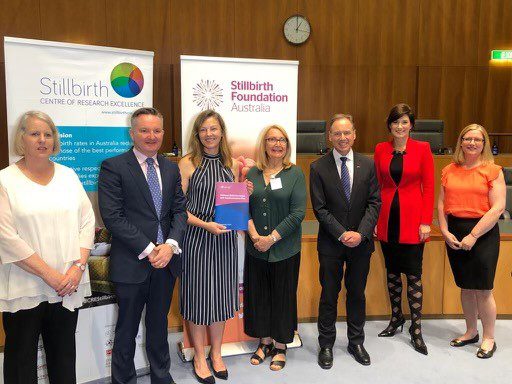
On 10 December, the Stillbirth CRE was honoured to attend the launch of the National Stillbirth Action and Implementation Plan at Parliament House in Canberra.
The National Stillbirth Action and Implementation Plan’s primary goal is to reduce stillbirths by at least 20 per cent over the next five years, with the Federal Government pledging $11 million to implement the plan.
The plan has bipartisan support in Parliament and is the culmination of years of work by researchers, advocates and parents. The plan’s five key priority areas, with recommended actions for the short, medium and long-term, are:
1. Ensuring high quality stillbirth prevention and care
2. Raising awareness and strengthening education
3. Improving holistic bereavement care and community support following stillbirth
4. Improving stillbirth reporting and data collection
5. Prioritising stillbirth research
The National Stillbirth Action and Implementation Plan is available on the Department of Health website at www.health.gov.au/maternity.
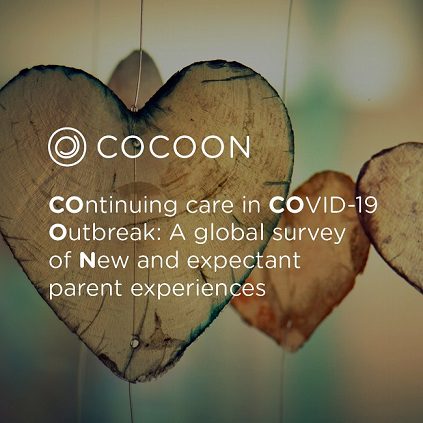
Stillbirth CRE launched the COCOON global study in association with the International Stillbirth Alliance in 2020 to better understand how the COVID-19 pandemic has disrupted maternity and bereavement care services across the world. Initial findings show that expectant parents and mothers who have experienced stillbirth are experiencing high levels of anxiety during this pandemic with improvements to care needed.
As the pandemic continues to affect individuals and health services worldwide, COCOON will continue in early 2021.
We would particularly like to understand the experiences and concerns of parents who have experienced a stillbirth or neonatal death during the pandemic. This will help improve future care, particularly bereavement care, for families around the world during COVID-19 and other future health crises. Please share this study widely with family, friends, colleagues and patients.
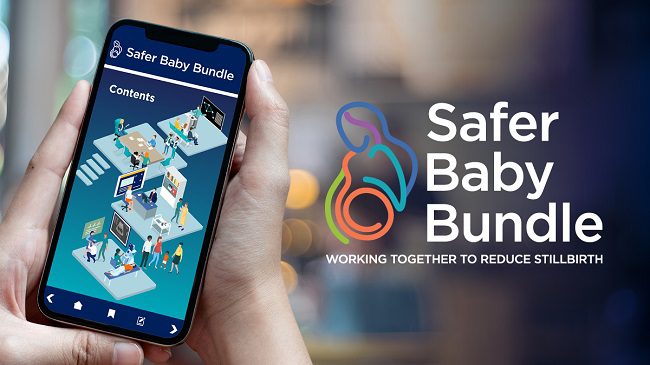
The Safer Baby Bundle has officially launched in more health jurisdictions across Australia, with Queensland, Western Australia and the Australian Capital Territory joining Victoria and New South Wales in rolling out the program designed to keep more pregnant women and their babies safe during pregnancy.
The Safer Baby Bundle provides evidence-based resources including care pathways, eLearning modules, and best practice recommendations for maternity health care providers on five elements of the bundle: Smoking Cessation, Fetal Growth Restriction (FGR), Decreased Fetal Movements (DFM), Maternal Side Sleeping, and Timing of Birth.
For more information visit the Safer Baby Bundle or access the eLearning material.
Maternity health professionals working in rural and remote Australia will help drive stillbirth prevention strategies for remote Australia, thanks to the development of the new Rural and Remote Advisory Group within the Stillbirth CRE.
This group has helped guide the development and testing of the pilot Safer Baby Bundle Rural and Remote Masterclass, which took place on 11 December. Feedback from this pilot webinar will be used to adapt our key recommendations for stillbirth prevention to ensure they meet the needs of people in rural and remote regions of Australia. For more information, contact stillbirthcre@mater.uq.edu.au
A new study published in The Lancet Global Health highlights the importance of midwife-led care in low and middle income countries to reduce the rate of stillbirth.
Burnet Institute co-director and Stillbirth CRE investigator Professor Caroline Homer is the senior author on the paper, titled "Potential impact of midwives in preventing and reducing maternal and neonatal mortality and stillbirths: a Lives Saved Tool" modelling study. The study found that scaling up midwife-led care globally has the potential to save the lives of 4.3 million mothers and newborns annually by 2035. Read about the study
The latest data from the Australian Institute of Health and Welfare (AIHW) shows there were 2,115 stillbirths in Australia in 2018, with little change in rates in over two decades. At the same time, the neonatal death rate in Australia has decreased by 30%. The AIHW data records Australia’s rate of late pregnancy stillbirth (after 28 weeks’ gestation) as 2.4 per 1000 births; a small reduction over the past 20 years.
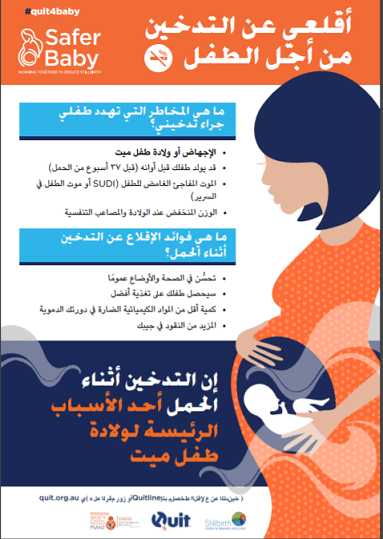
Maternity healthcare professionals can now access the latest Safer Baby Bundle resources via the Safer Baby Bundle implementation guide. New resources include 23 language translations for posters about maternal sleep position, smoking cessation and decreased fetal movements. We’d like to thank all the translators and collaborators who have worked diligently to create these important resources.
The Stillbirth CRE has also worked with collaborators to develop a new continuity of carer statement. This statement is designed to complement the five elements of the Safer Baby Bundle. The Stillbirth CRE recognises the positive impact continuity of care can have for all women and particularly women with known risk factors for stillbirth.
The statement can be found here on the CRE website.
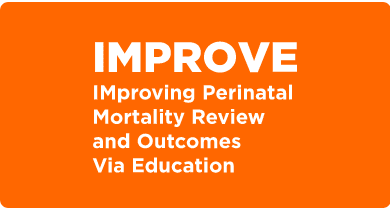
On Wednesday 4 November, the Stillbirth CRE partnered with the Perinatal Society of Australia and New Zealand (PSANZ) to officially launch the IMPROVE eLearning module – an online training package designed to support healthcare professionals responding to women and families who have experienced stillbirth, conduct perinatal autopsy and mortality reviews, and communicate with bereaved parents.
This virtual event included an overview of the training content by Professor Adrienne Gordon, presentation by bereaved parent and Stillbirth Foundation Ambassador Ann-Maree Imrie, and formal launch by Nicole Flint MP on behalf of Federal Minister for Health, Greg Hunt. A recording of this webinar is now available.
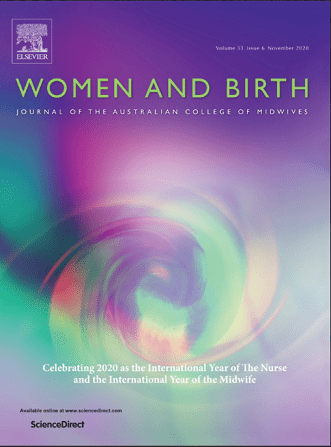
A new six-part series authored by members of the Stillbirth CRE is now available in the journal Women and Birth: Journal of the Australian College of Midwives. The series, titled “Stillbirth in Australia, presents an overview of stillbirth rates in Australia and key activities that led to the development of the National Stillbirth Action and Implementation Plan. Inequities in stillbirth rates, initiatives to prevent stillbirth, and the need for respectful parent-centred care and further research are also highlighted throughout the series.
You can access the series via the Women and Birth website.
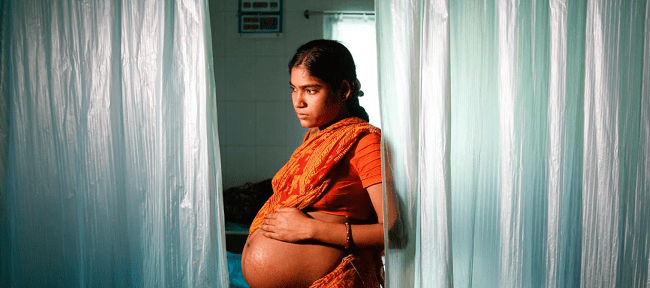
In October, the Stillbirth CRE partnered with UNICEF and WHO for the virtual launch of the first ever global stillbirth estimates report.
Ending preventable stillbirths: A renewed call for collective action featured parent and caregiver voices, as well as a discussion around the results of the report.
Nearly 2,000 people attended, and many contributed throughout the event. We hope that this engagement will continue to ensure that progress is made to help end preventable stillbirths. To watch the recording and view the slides, please click here.
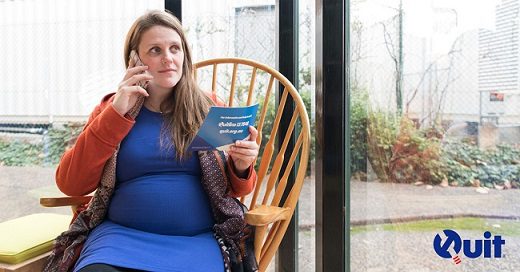
More pregnant women and their partners will be supported to stop smoking with new Australian resources designed for their treating health professionals.
The resources —clinical guidelines and an online training package—have been developed by Quit and Alfred Health to help GPs, obstetricians, midwives and pharmacists have a simple conversation and provide best practice care so pregnant women and their partners may lead healthier lives for themselves and their babies.
The guidelines support the Safer Baby Bundle, and have been endorsed by RANZCOG, the Australian College of Midwives and the Stillbirth CRE, and are recognised as an Accepted Clinical Resource by the RACGP. See http://quit.org.au/maternity for details.
The Stillbirth CRE PhD top up scholarship is designed to support exceptional PhD candidates whose projects align with the Stillbirth CRE priority areas and make a meaningful contribution to stillbirth research. Find out what our current top-up scholars have been up to below.
Applications for the 2021 PhD top-up scholarship are now open. Find out more about eligibility criteria and how to apply here.
Roshan Selvaratnam

Roshan is currently undertaking an accelerated PhD pathway within his Doctor of Medicine (MD) studies at Monash University. His studies address the detection and management of fetal growth restriction at a whole-of-population level, with the intent of improving care and reducing stillbirth. Most recently, Roshan's work was the subject of a Perspectives piece that he wrote for the Medical Journal of Australia (MJA) on the Australian Safer Baby Bundle. It received considerable media coverage, including being selected for the MJA Podcast and by Norman Swan for the Health Report on Radio National.
Roshan's work has led to the development of balance measures to quantify and make visible the potential unintended harm of driving to reduce stillbirth. The Safer Baby Bundle has embraced Roshan’s balance measures into their program and evaluation. Roshan’s PhD work has also earned him the RANZCOG Aldo Vacca Award, the PSANZ David Henderson-Smart Scholarship, and the SRI President’s Presenter’s Award. He is now turning his focus to looking at the long-term outcomes of fetal growth restriction.
Anneka Bowman
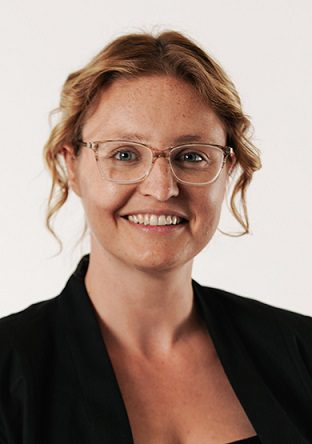
Anneka is a PhD student from the University of Adelaide based in South Australia. Her research focuses on lifestyle, environmental and sociodemographic risks associated with stillbirth. This year Anneka and her team have completed data extraction for a large systematic review examining these risk factors and their impact in high income countries. After extraction of some 400 studies, the analysis is now underway.
Anneka’s second project entails utilisation of a large local perinatal dataset encompassing all births within South Australia (SA) from 1998 to 2016. This dataset reviews the same lifestyle and environmental risk factors, identified in the systematic review, and their association with stillbirth across SA. This research identifies populations at risk, occupational groups at risk, and further investigated the impact of potential risk mitigation strategies and where we should focus our efforts to reduce stillbirth rates in SA. Drafting of the final manuscript is currently underway.
Jessica Sexton
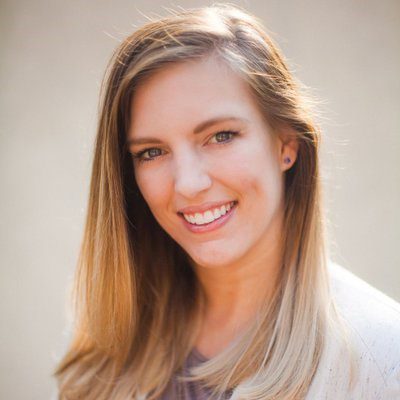
In the midst of the COVID-19 pandemic in 2020, the NHMRC Stillbirth CRE top-up Scholarship has supported Jessica’s attendance at two online training workshops for machine learning and artificial intelligence in addition to supporting professional memberships to the Australian Society of Medical Research (ASMR), Statistical Association of Australia (SSA), and the Australasian Epidemiological Association (AEA). The scholarship also directly supported remote research activities that have resulted in a published commentary, published protocol, two systematic reviews (one currently under peer review), and two additional analysis manuscripts (in prep).
With support of the Stillbirth CRE, Jessica was able to travel to Canberra in March 2020 prior to COVID-19 lockdown to perform risk prediction modelling analyses at the Data Integration Services Centre (DISC) Lab at the Australian Institute of Health and Welfare. Using preliminary evidence of spatial clustering of risk factors for stillbirth at the Mater Mothers’ Hospital in Brisbane, a new project is now underway to explore spatial associations of stillbirth in Queensland. Through this top-up scholarship and with support from collaborators, new evidence that improves our understanding of stillbirth epidemiology has been established.
Alyce Wilson
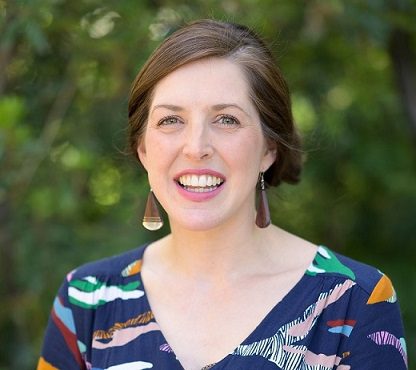
Dr Alyce Wilson is a public health medicine registrar and PhD candidate at the Burnet Institute and the University of Melbourne. Alyce is leading a multi-site quality improvement research study aiming to improve the quality of care during labour and childbirth in five high-burden, low-resource health facilities in rural Papua New Guinea (PNG). This year Alyce published a scoping review examining existing interventions in the Pacific region to improve the quality of maternal and newborn care (available here). She completed data collection in early 2020 and is now in the process of analysing her PhD data and writing up the findings.
Alyce is very grateful for the support of the Stillbirth CRE top-up scholarship, which will provide funding for study trips to PNG to maintain stakeholder relationships, support the local research team in Kokopo with project coordination and provision of training in appropriate research standards and approaches, and share findings with key stakeholders in East New Britain. Unfortunately, COVID-19 disrupted some of these plans for 2020 but Alyce has continued to work with the team in East New Britain to coordinate a workshop to discuss study findings and plan quality improvement interventions with obstetric, midwifery and paediatric colleagues in East New Britain. Thank you Stillbirth CRE for your generous support!
Professor Vicki Flenady Featured on ABC BabyTalk Podcast
Stillbirth CRE director Professor Vicki Flenady spoke to Penny Johnston, host of the ABC’s BabyTalk podcast, about stillbirth research, prevention, and the risk factors for preventable stillbirths. You can listen to the podcast online here or download via iTunes, Spotify or other hosted platforms.
The Courier Mail on the Launch of IMPROVE
On 8 November, The Courier Mail published an article titled “Despair to discovery: Autopsy after stillbirth might hold key to cutting rate”. The article outlines how IMPROVE offers maternity health professionals new resources to provide supportive care after stillbirth, conduct perinatal autopsies, and better communicate with bereaved parents.